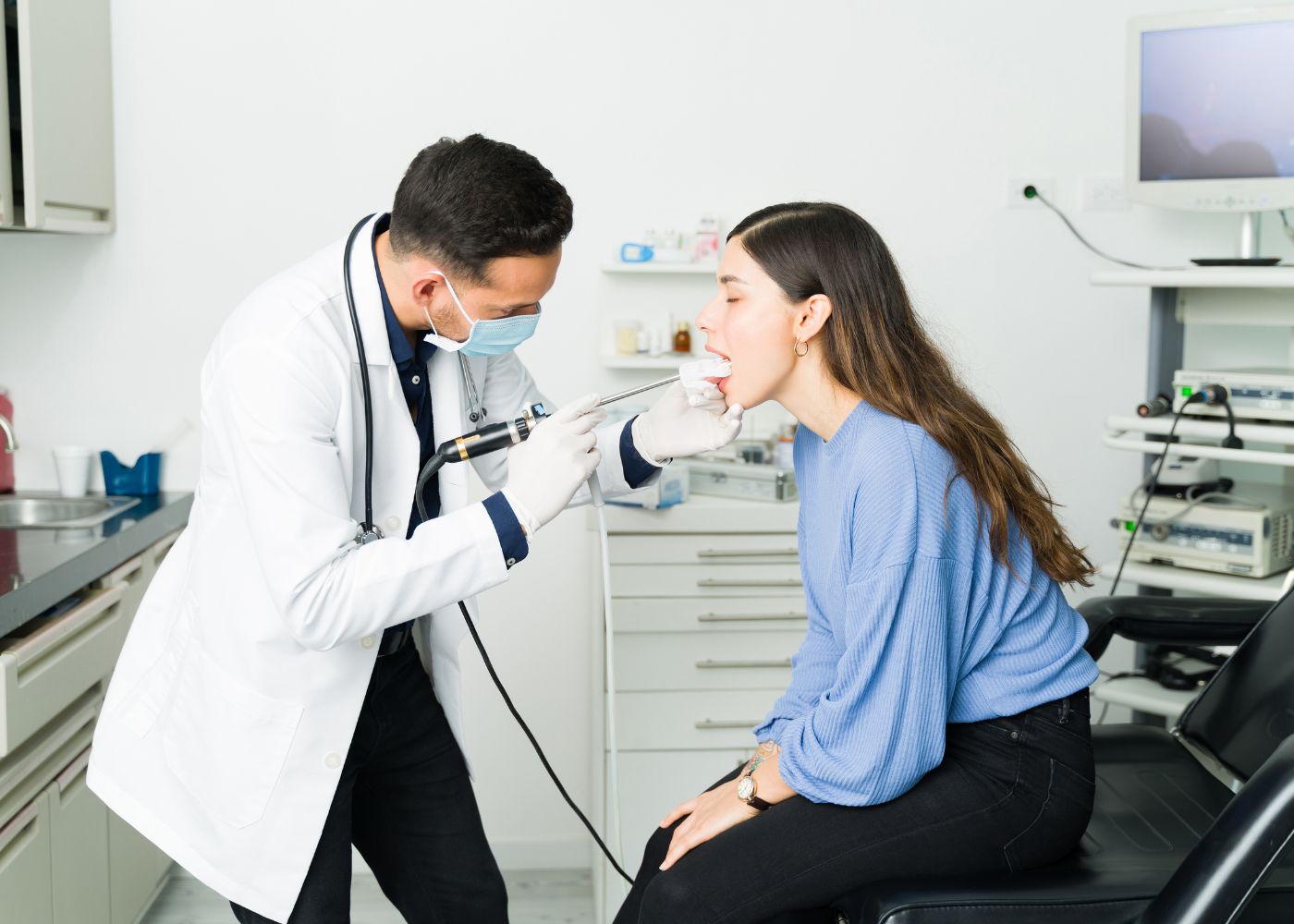Many people often worry whether they are testing too soon when symptoms of strep throat first appear. Recognizing the correct timing to undergo a strep test is crucial to ensure the results are accurate.
This knowledge not only assists in confirming your health status but also informs the necessary steps towards recovery.
Strep Throat Explained: Diagnosis and Testing
Strep throat is a common bacterial infection primarily caused by Streptococcus pyogenes. Accurate diagnosis is essential for effective treatment and can prevent complications such as rheumatic fever or kidney inflammation. Here’s a closer look at the primary diagnostic methods for this acute illness:
1. Rapid Strep Test (RST)
- Procedure: A swab is taken from the back of the throat and tested for the presence of strep bacteria.
- Timeframe for Results: Typically provides results within 5 to 20 minutes.
- Accuracy: Generally reliable, but can miss some infections, known as false negatives.
2. Throat Culture
- Procedure: Similar to RST, a throat swab is cultured in a lab to grow any bacteria present.
- Timeframe for Results: Takes 24 to 48 hours for bacteria to grow sufficiently to be detected.
- Accuracy: Considered the gold standard for diagnosing strep throat, highly accurate.
3. Factors Affecting Fluency
- Timing of the test relative to symptom onset.
- Quality of the swab specimen.
- Presence of other symptoms or infections which might confuse diagnosis.
Timing of Strep Throat Testing
The correct timing of a strep throat test is crucial to ensure the accuracy of the results. Here’s a deeper dive into understanding this critical factor:
Testing Too Early
Testing for strep throat too soon after symptom onset may result in a false negative because the bacteria levels may not have reached a detectable threshold. This premature testing can mislead patients into thinking they do not have the infection, potentially delaying necessary treatment and precautions.
Ideal Testing Time
The best time to test for strep throat is generally 2-3 days after the initial appearance of symptoms. This window allows the bacteria to proliferate to a level that is typically detectable by standard diagnostic tests.
Late Testing
While late testing can still confirm the presence of the infection, it is less beneficial for initiating timely treatment. Delayed testing may complicate the clinical course of the disease and increase the risk of spreading the infection to others.
Symptoms and When to Test for Strep Throat
Identifying symptoms promptly and understanding the optimal time for testing are key to managing and treating strep throat effectively:
Common Symptoms
- A sudden onset of a severe sore throat.
- Significant pain upon swallowing.
- High fever exceeding 101°F (38.3°C).
- Swollen and tender lymph nodes around the neck.
- Visible white patches or streaks of pus on the tonsils or throat.
Optimal Timing for Testing
- Testing should ideally occur at least 24 hours after these symptoms manifest to improve diagnostic accuracy.
- It is important to monitor symptoms closely; if they intensify or do not improve within 48 hours, it is advisable to seek testing and medical advice promptly.
Accuracy of Early Strep Tests
Understanding the limitations and the ideal conditions for strep tests can help ensure that patients receive the correct diagnosis:
Rapid Strep Test Limitations
- Early Testing: Conducting a rapid strep test too soon can result in false negatives, where the test fails to detect an infection that is present.
- Sensitivity and Specificity: While rapid tests are generally reliable, their accuracy is contingent upon the timing of the test. Early testing typically reduces the sensitivity of the test, potentially leading to undetected infections.
Reliability Factors
- Operator Technique: The accuracy of the test also depends on the correct swab technique used by the healthcare provider.
- Bacterial Load: The detectability of strep bacteria increases with the bacterial load in the throat, which typically accumulates a few days after the onset of symptoms.
When to Seek Medical Attention
Knowing when to seek immediate medical care can be crucial, especially if symptoms are severe or do not improve with initial home care:
Severe Strep Throat Symptoms Requiring Immediate Attention
- Any difficulty in breathing or swallowing.
- Signs of severe dehydration, such as significantly reduced urine output, persistent dry mouth, and intense thirst.
- A fever that persists above 101°F (38.3°C) for more than two days despite home management.
Services Provided by +MEDRITE Urgent Care
- +MEDRITE offers expert assessments by trained medical professionals.
- Availability of both rapid and throat culture tests to confirm the diagnosis.
- Initiation of treatment based on symptoms and test results without delay.
Treatment Options and Care at +MEDRITE
Effective management of strep throat involves a combination of medical and supportive services:
- Antibiotics: These are the primary treatment for strep throat, aimed at reducing the duration and severity of symptoms, and preventing complications.
- Supportive Care: Includes over-the-counter pain relievers, throat lozenges, and ensuring adequate hydration and rest.
- Follow-Up: It is important to complete the prescribed course of antibiotics and follow up with a healthcare provider if symptoms persist or worsen.
Strep Throat Prevention Tips
Implementing preventive measures can significantly lower the risk of contracting or spreading strep throat:
- Maintain Good Hygiene
- Regular and thorough handwashing with soap and water.
- Avoiding the sharing of personal items such as utensils and drinking glasses..
- Healthy Practices
- Ensuring adequate hydration, sufficient rest, and stress management to support the immune system.
Understanding the correct timing for strep throat testing is crucial for accurate diagnosis and effective treatment. This article has explored key aspects of strep throat testing, symptoms, and when to seek professional medical advice.
For anyone experiencing symptoms or in need of expert care, +MEDRITE Urgent Care is equipped to provide both testing and treatment. Don’t hesitate to reach out if you suspect strep throat or need health guidance.

